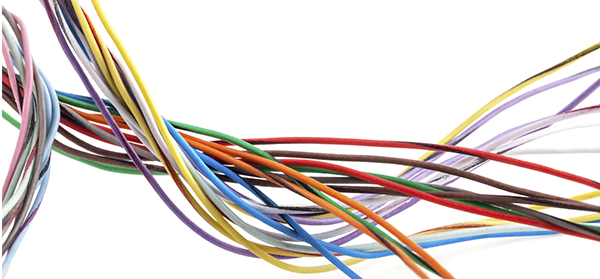For most of 2014, the Federal Communications Commission has been debating rules to protect the open Internet. The key question is whether the agency should adopt streamlined, modern rules based on the FCC’s general power to promote the broadband Internet market or to reclassify the Internet under archaic public utility rules called Title II.
Lately, however, an even more convoluted idea has emerged: a hybrid approach that would dramatically expand regulation of the back end connections between so-called edge companies (apps, content and services) and Internet service providers (ISPs) under the utility approach, while using the lighter-touch general authority for the rest of the network.
While much remains unknown about this proposal, what we have heard so far raises serious questions about the depth and reach of government into the Internet.
The recent election can be read many ways, but the public’s repudiation of government micromanagement of our lives and the economy rang clear. It should give us pause when the chairman of the FCC describes his hybrid proposal as a double-barrel approach. Government shotguns pointed at vibrant industries and markets will kill, not nurture, the Internet.
Preserving an open Internet is about giving consumers the freedom to do what they want on the web and creating conditions for greater speeds and lower prices. The net neutrality debate, however, is a referendum on how big a role the government should play in regulating the Internet. Like the “Saturday Night Live” characters Hans and Franz, some net-neutrality advocates want to pump the FCC up with the regulatory steroids of Title II.
Title II really amounts to giving the federal government the power to regulate rates — and state governments the power to impose new taxes on Internet access — and trample over private contracts freely negotiated in a competitive market.
Government officials privately concede there is no real evidence of a problem that needs fixing. ISPs have not blocked content or stuck up edge providers for payment to deliver their bits faster than others and they have repeatedly demonstrated that they have no economic incentive to do so.
The problem being addressed, sadly, is more political than substantive. The FCC is considering the assertion of broad control of the most vibrant technology in world history largely to mollify the ill-formed, breathless fears of political constituencies. The FCC was created, in part, to make sober, well-balanced decisions insulated from the stormy howling winds of noisy crowds that may not fully appreciate the risks of what they advocate.

Title II is dangerous for the Internet in all its forms. It is a rusty sledgehammer that has been sitting in the garage for 20 years. If the government reaches for it and wields it over the dynamic, vibrant, ever-changing Internet that has revolutionized our lives, the unintended consequences would be severe. Consider just a few well-documented risks from this Depression-era regulation:
First, consumers would be harmed immediately. Many states impose taxes and fees on Title II services that they do not assess on broadband. Your bill would go up and consumer adoption would suffer, undermining the national goal to get everyone online.
Second, monopoly would be strengthened and competition would suffer. In 1996, a bipartisan Congress declared that competition fueled by reduced regulation is the lodestar of national communications policy in order to preserve the vibrant and competitive free market that presently exists for the Internet.
Regulations can be costly and discourage new competitive entry. They can also entrench the advantages of incumbents who know how to play the regulatory game while startups struggle to navigate its Byzantine twists and turns.
Third, Internet speed growth would slow down. Capital markets are reluctant to fund highly regulated industries — common carrier reclassification is basically an investment tax that would make it harder to upgrade networks and keep increasing consumer speeds. This hurts innovators and consumers alike who are clamoring for dramatically faster speeds.
Fourth, tech Innovators would be harmed. In a recent survey of tech companies in “The Atlantic,” tech leaders said the No. 1 barrier to innovation was government regulation and bureaucracy.
Look at Uber, which is fighting to avoid being classified as a taxi service with dated common-carrier transportation laws; or Airbnb, which is fighting dated applications of hotel and housing rules; or unsuccessful efforts to update old privacy laws, patent and copyright laws, immigration laws as well as surveillance reform.
It is stunning that anyone committed to innovation would court Title II, the granddaddy of industrial-era regulation, being put in place. Fortunately, there are responsible ways to adopt lighter, equally effective approaches for preserving consumer freedoms on an open Internet without resorting to the aging and wrinkled Title II.
As a student of history, FCC Chairman Tom Wheeler knows that great leaders look ahead, not backward. The road to the future is clear and not lined with outdated regulations.
This op-ed was originally published by The Seattle Times on November 9th, 2014
